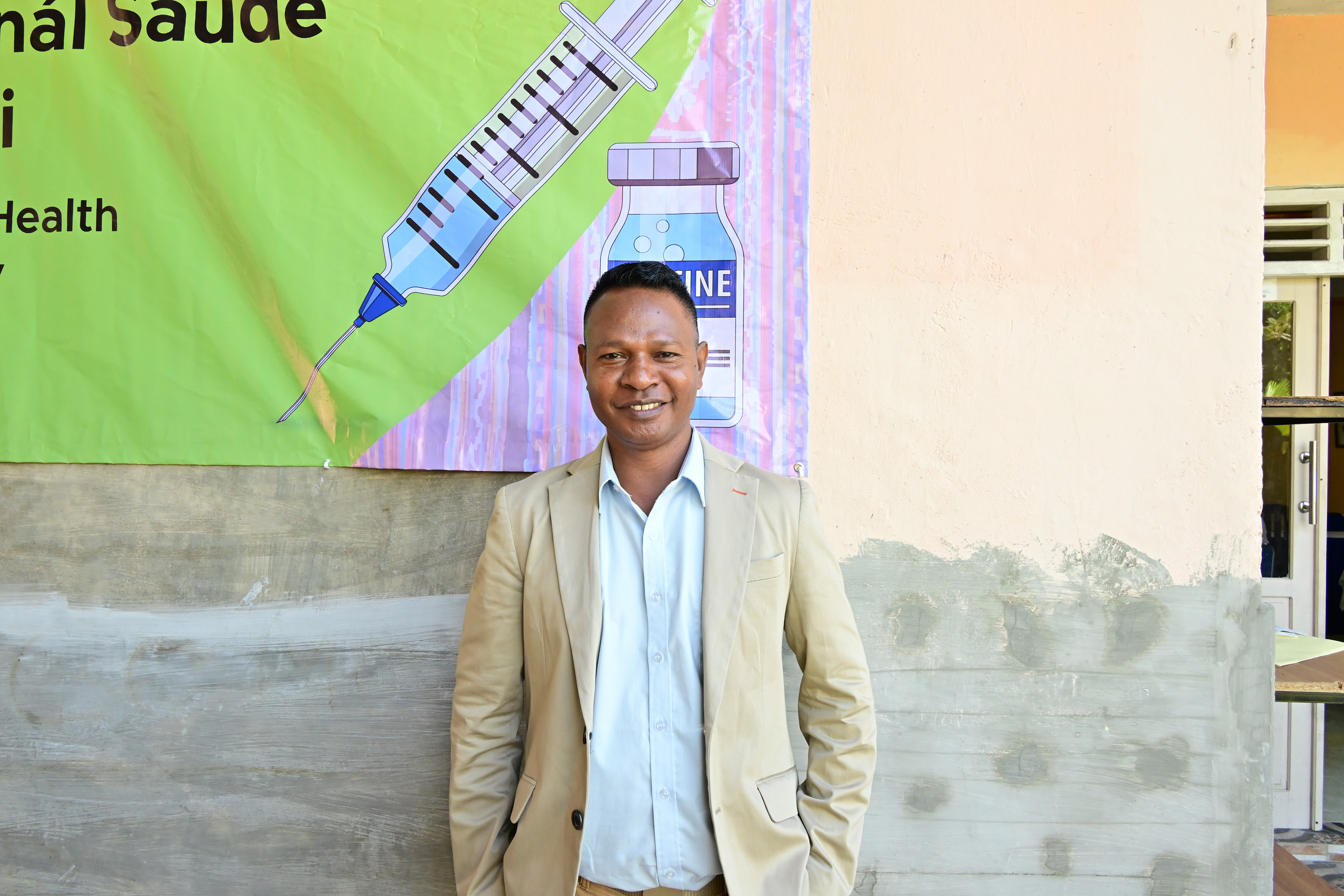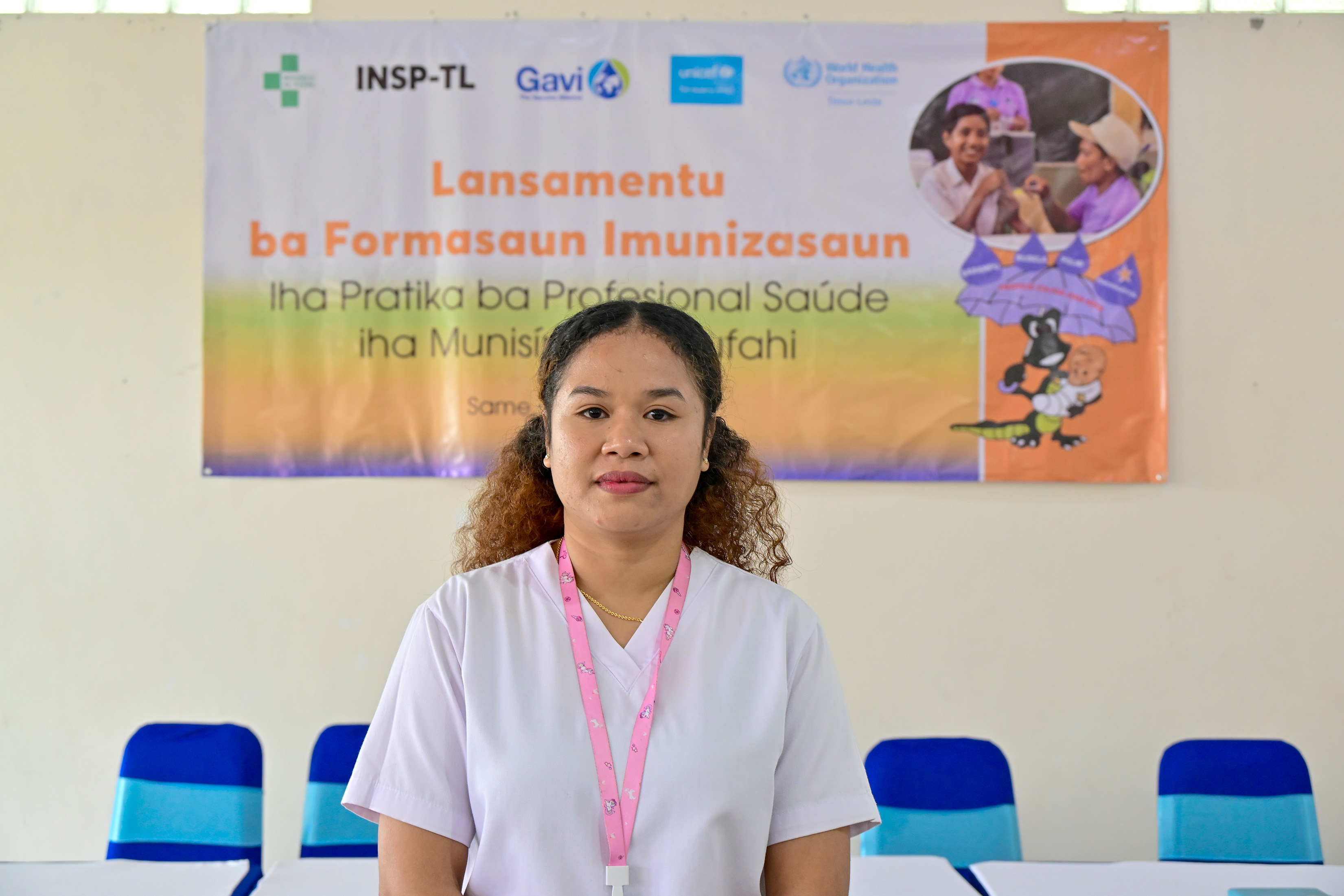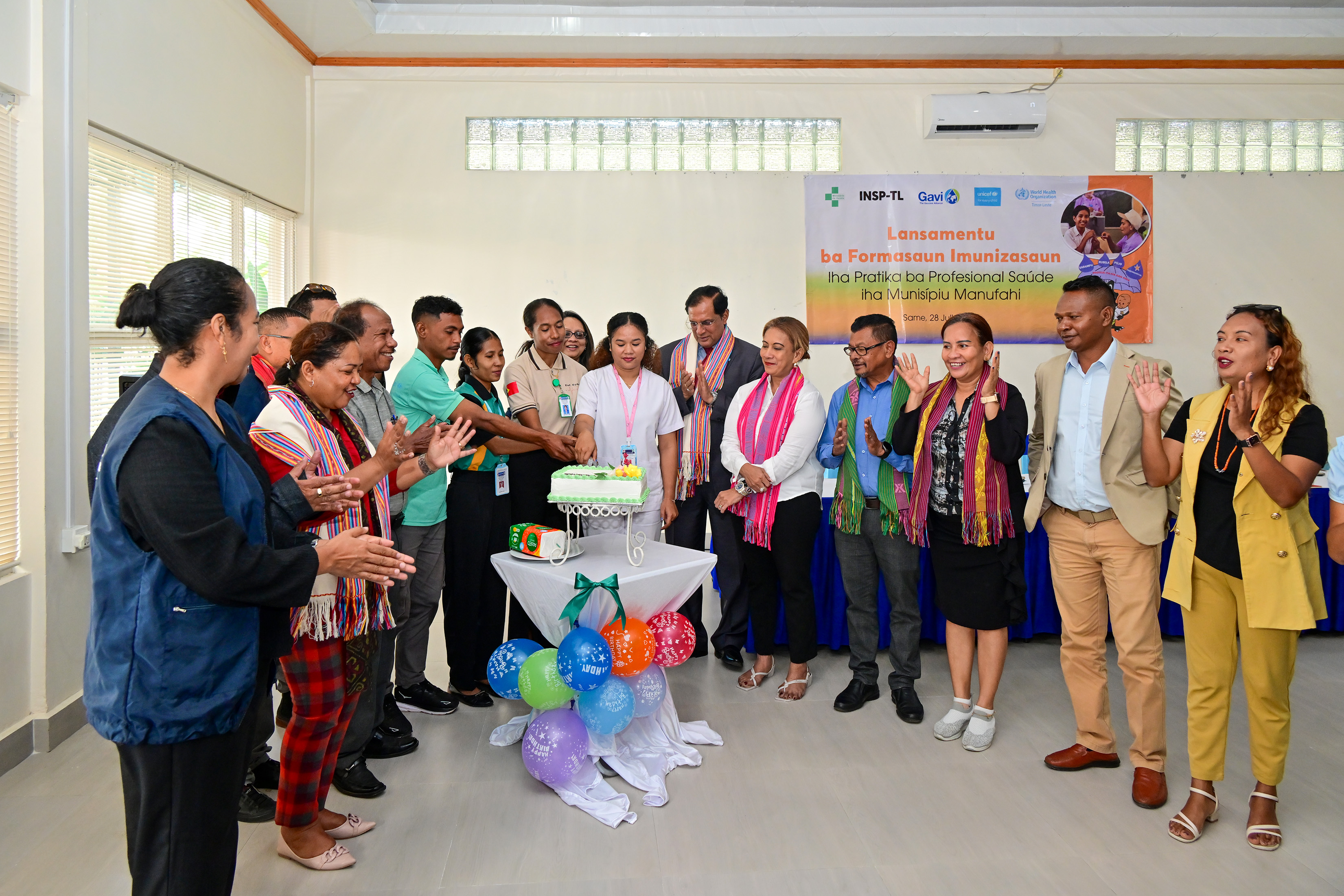Dili, Timor-Leste: For the first time in nearly two decades, a national Immunization in Practice (IIP) training programme is being rolled out across Timor-Leste. It is a timely and essential step to strengthen the country’s immunization services and equip frontline health workers with life-saving skills.
The journey began in April with a National Training of Trainers in Baucau, which prepared local facilitators to deliver the IIP modules locally. Following successful sessions in Lautem, Bobonaro, and Oecusse in May and June, health professionals from the municipalities of Manufahi and Ainaro gathered in July for the latest round of training. The programme will eventually cover all 13 municipalities.

Unlike conventional workshops, IIP offers a comprehensive and hands-on learning experience that places health workers at the centre of national immunization efforts.
“It’s a continuation of Timor-Leste’s long-standing commitment to protect every child, every family, through vaccines,” said Dr Arvind Mathur, WHO Representative to Timor-Leste. “And it couldn’t have come at a more important time, as we strengthen health systems and respond to new threats like rabies.”
The five-day IIP programme covers all key aspects of immunization: from understanding the diseases vaccines prevent, proper injection techniques, cold chain management, managing immunization sessions, monitoring and surveillance, microplanning for community engagement and partnership. But what makes this training special is its focus on real-world application and two-way learning.
The curriculum was adapted using inputs from previous participants and reviewed by WHO to ensure it reflects both global best practices and local realities. Trainers are not external experts, but national-level facilitators who were themselves trained during the Baucau sessions.
Jose A. O Lima, a trainer with INSP-TL, described the programme as both necessary and urgent. “We don’t have enough health workers skilled in vaccination at our health centres. This training helps change that,” he said. “I’m proud to help new staff build their knowledge because that’s how we improve routine services and protect more people.”

Another distinctive feature of the programme is its mutual feedback process. Participants are evaluated not only on what they learn, but also encouraged to share what could be improved. It builds a culture of continuous learning.
A major highlight of the training is the hands-on field visit to Community Health Centres (CHCs) and outreach, where participants observe and practise administering vaccines in real-world conditions. These sessions offer vital exposure to the delivery of oral and injectable vaccines, counselling families on what to expect post-vaccination, and maintaining safe handling protocols.
For Agripina M. de Jesus Pereira, a nurse at CHC Same, this hands-on element has been transformative. “As a new nurse, I’ve often seen parents choose senior staff to vaccinate their children. But after this training, I feel much more confident,” she said. “It’s helping us serve our communities better.”

Confidence and competence are essential, especially in a country like Timor-Leste, where health workers often traverse challenging terrain to deliver vaccines to remote communities. Despite achievements, challenges persist: from hard-to-reach communities and transport issues to workforce shortages, misinformation, and vaccine hesitancy. Strengthening the skill and confidence of frontline workers is critical to overcoming these hurdles.
Organised by the Ministry of Health, INSP-TL, WHO, and UNICEF, the IIP training is a clear signal of collective intent to address these barriers. It also comes at a time of heightened urgency, as the country responds to a rabies outbreak that was declared a public health emergency in several municipalities this June.
“As part of the training, health workers are also learning to safely administer rabies post-exposure prophylaxis and rabies immunoglobulin. These are intervention that can save lives,” Dr Mathur noted. Timor-Leste has declared rabies as a public health emergency of national concern in June.

Since the introduction of its Expanded Programme on Immunization (EPI) in 2002, Timor-Leste has made remarkable progress. The country has gone from offering six antigens to thirteen, maintained its polio-free status since 1995, eliminated maternal and neonatal tetanus in 2012, measles in 2018, and rubella in 2023.
The current IIP programme builds on that legacy. “Because ultimately, it’s not just about mastering techniques. it’s about empowering health workers to build trust, improve coverage, and ensure no child is left behind,” Dr Mathur stated.
